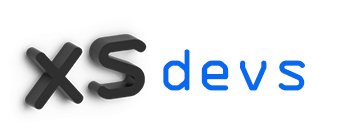Content Management Systems (CMS) play a vital role in building and managing websites, offering a user-friendly interface and a range of features for website owners. In this article, we will compare three popular CMS options: WordPress, Drupal, and Joomla. Understanding the strengths and weaknesses of each platform will help you make an informed decision when choosing the right CMS for your website.
Table of Contents
- Introduction to Content Management Systems (CMS)
- WordPress
- Features and Flexibility
- Ease of Use
- Plugins and Themes
- Community and Support
- Drupal
- Features and Flexibility
- Learning Curve
- Extensibility and Scalability
- Community and Support
- Joomla
- Features and Flexibility
- User-Friendly Interface
- Extensions and Templates
- Community and Support
- Comparison and Decision Factors
- User-Friendliness
- Flexibility and Customization
- Community and Support
- Scalability and Performance
- Security
- Conclusion
- FAQs
1. Introduction to Content Management Systems (CMS)
Content Management Systems are software platforms that simplify website creation and management. They provide a user-friendly interface for adding, editing, and organizing content without requiring extensive coding knowledge.
2. WordPress
Features and Flexibility
WordPress is the most popular CMS, known for its simplicity and extensive plugin ecosystem. It offers a wide range of themes and plugins that allow users to create and customize websites for various purposes.
Ease of Use
WordPress is beginner-friendly, with an intuitive interface and a vast community that provides ample documentation and support. Users can easily manage content, customize designs, and add functionality without advanced technical skills.
Plugins and Themes
WordPress boasts a vast library of plugins and themes, offering endless possibilities for customization. Users can enhance website functionality and design by installing plugins and choosing from thousands of themes.
Community and Support
WordPress has a large and active community of users and developers. Users can find support through forums, tutorials, and online communities.
3. Drupal
Features and Flexibility
Drupal is known for its robustness and scalability, making it suitable for complex and large-scale websites. It offers extensive customization options and advanced content management capabilities.
Learning Curve
Drupal has a steeper learning curve compared to WordPress. It requires some technical expertise to set up and configure, making it more suitable for experienced developers.
Extensibility and Scalability
Drupal excels in handling complex projects and large volumes of content. It offers a flexible architecture that allows developers to create custom solutions and build highly scalable websites.
Community and Support
Drupal has an active community and dedicated support channels. Users can access documentation, forums, and community events to seek assistance and share knowledge.
4. Joomla
Features and Flexibility
Joomla offers a balance between WordPress and Drupal. It provides a range of built-in features and customization options suitable for various website types.
User-Friendly Interface
Joomla has an intuitive and user-friendly interface that strikes a balance between simplicity and flexibility. It allows users to manage content, customize layouts, and extend functionality without extensive technical knowledge.
Extensions and Templates
Joomla offers a wide array of extensions and templates to enhance website functionality and design. Users can choose from a variety of options to create unique and visually appealing websites.
Community and Support
Joomla has an active community that provides support through forums, documentation, and community events. Users can seek assistance and engage with other Joomla enthusiasts.
5. Comparison and Decision Factors
When choosing a CMS, consider the following factors:
User-Friendliness
WordPress is the most beginner-friendly CMS, while Drupal requires more technical expertise. Joomla offers a balance between simplicity and flexibility.
Flexibility and Customization
Drupal offers the most flexibility and customization options, followed by Joomla and WordPress.
Community and Support
WordPress has the largest and most active community, followed by Joomla and Drupal. Consider the availability of documentation, forums, and support channels when making a decision.
Scalability and Performance
Drupal excels in handling large-scale projects and high traffic websites. WordPress and Joomla are also capable of scaling, but Drupal’s architecture is specifically designed for scalability.
Security
All three CMS platforms have security measures in place. However, Drupal has a reputation for its strong security features and is often the choice for websites with higher security requirements.
6. Conclusion
WordPress, Drupal, and Joomla are powerful CMS options, each with its own strengths and weaknesses. WordPress is ideal for beginners and small to medium-sized websites. Drupal is suitable for complex and scalable projects, while Joomla offers a balance between simplicity and flexibility. Consider your specific needs, technical expertise, and long-term goals when choosing the right CMS for your website.
FAQs
- Q: Can I switch from one CMS to another in the future? A: Yes, it is possible to migrate from one CMS to another. However, the process may involve some complexities, such as data migration and website restructuring.
- Q: Which CMS is more SEO-friendly? A: All three CMS platforms offer SEO-friendly features. However, WordPress has a larger selection of SEO plugins and easy-to-use SEO optimization options.
- Q: Can I add e-commerce functionality to these CMS platforms? A: Yes, all three CMS platforms support e-commerce functionality through plugins or extensions. WordPress with WooCommerce, Drupal with Drupal Commerce, and Joomla with VirtueMart are popular choices for e-commerce websites.
- Q: Are there ongoing costs associated with using these CMS platforms? A: The CMS software itself is free to use. However, there may be costs associated with hosting, premium themes or plugins, custom development, and ongoing maintenance.
- Q: Can I build multilingual websites with these CMS platforms? A: Yes, all three CMS platforms support multilingual websites through plugins, extensions, or built-in features.

